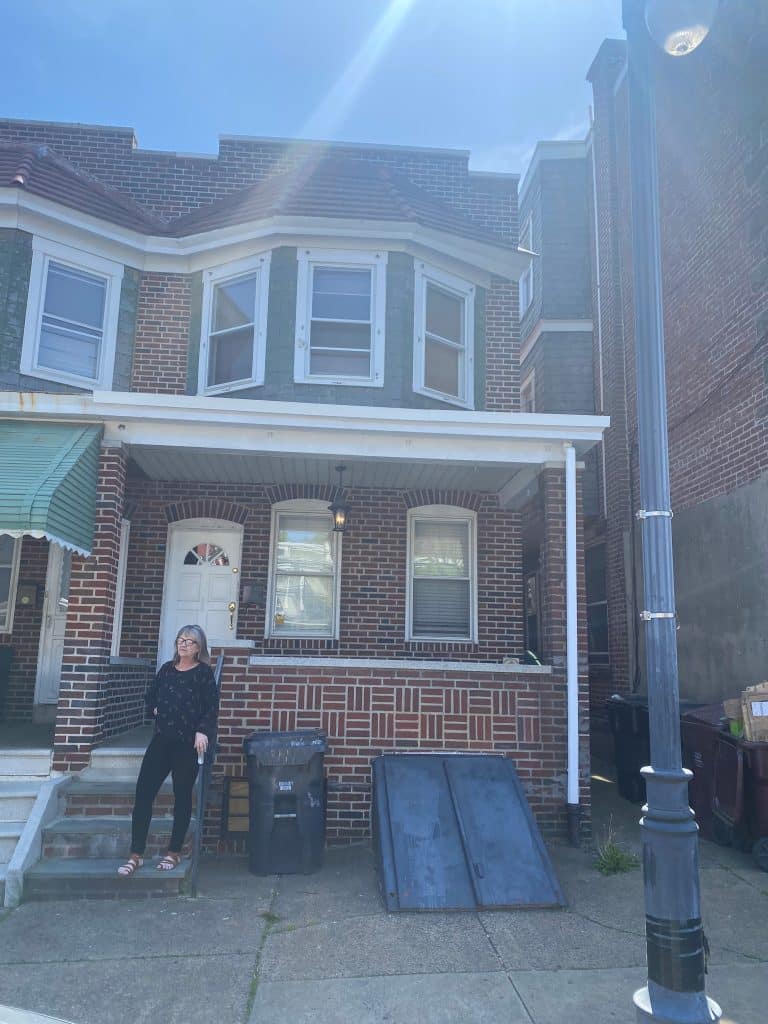Transitional Housing Now Livable Thanks to DCF Capital Grant
Transitioning from incarceration to civilian life can be difficult, and a grant from the Delaware Community Foundation (DCF) is helping ensure that women entering Friendship House’s Transitional Housing Program have a safe place to receive support and redefine their lives.
The $10,400 DCF grant was used to update electrical wiring, repair basement walls and install new windows in a house purchased last year for the nonprofit’s Transitional Housing Program. These upgrades will allow Friendship House to move women into the Wilmington house and start the process of helping them get a fresh start.
Friendship House is one of 22 organizations awarded $254,823 from the DCF’s Capital Grants program. The program assists with the acquisition, final-stage design, construction, repair, renovation, rehabilitation, or other capital improvements of facilities, so nonprofits in all three counties can operate as efficiently and effectively as possible. Capital Grants support projects that will have a lasting, positive impact on the population or community served by the grantee organization.

The recently acquired house is the latest addition for Friendship House, which began in Wilmington in the winter of 1986-87 with a thrift store opened by a group of faith communities to serve a growing homeless population in New Castle County. During the day, the store provided assistance and advocacy; at night, its doors opened to those seeking shelter. In 1988, Friendship House incorporated as a nonprofit and began building its services and programs, including its Sunday Breakfast, Empowerment Centers and Clothing Bank.
About five years after becoming a nonprofit, Friendship House started the Transitional Housing Program to help people who previously had issues with substance abuse, domestic violence or were transitioning to civilian life after incarceration. In July 2022, a grant from the Longwood Foundation enabled Friendship House to purchase the first women’s entry-phase house in the program.
“When we got the green light from the Longwood Foundation, we began seeking out options and looked at three or four houses,” Friendship House Executive Director Kim Eppehimer said. “This house hit all the buckets. It had the right number of rooms in the right spots and was in a very accessible location to the organization.”
However, the house was not move-in ready. Problems with mold, rotten floorboards and out-of-date electrical wiring had to be addressed. With the Capital Grant from the DCF, Friendship House hired an electrician to rewire the house to bring it up to code and install more electrical outlets throughout. Broken windows were also replaced in the basement. The work was completed early this year and the house was opened to its first resident in March.
“We needed to create a program that can support women leaving incarceration because their needs are going to be more than the women that are already in our current housing program,” Friendship House Clothing Bank Director Cheryl Bryant said. The Clothing Bank operates a transitional employment and life skills program called the Creating Excellent Outcomes (CEO) program. Many of the women working at the Clothing Bank and participating in the CEO Program are exiting incarceration. Friendship House’s Women’s Transitional Housing Director, Shawn Helmick, created the entry phase program along with Bryant to help support these women.
Typical stays in the house during the entry phase will be about 60 days. Once a woman shows enough progress, they will transition to phase one of Friendship House’s Transitional Housing Program where they will continue to receive treatment and support, including help acquiring insurance and government identifications and developing financial literacy. A woman released from incarceration might stay in the housing program for one to two and a half years, according to Helmick.